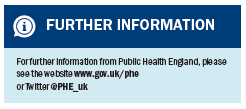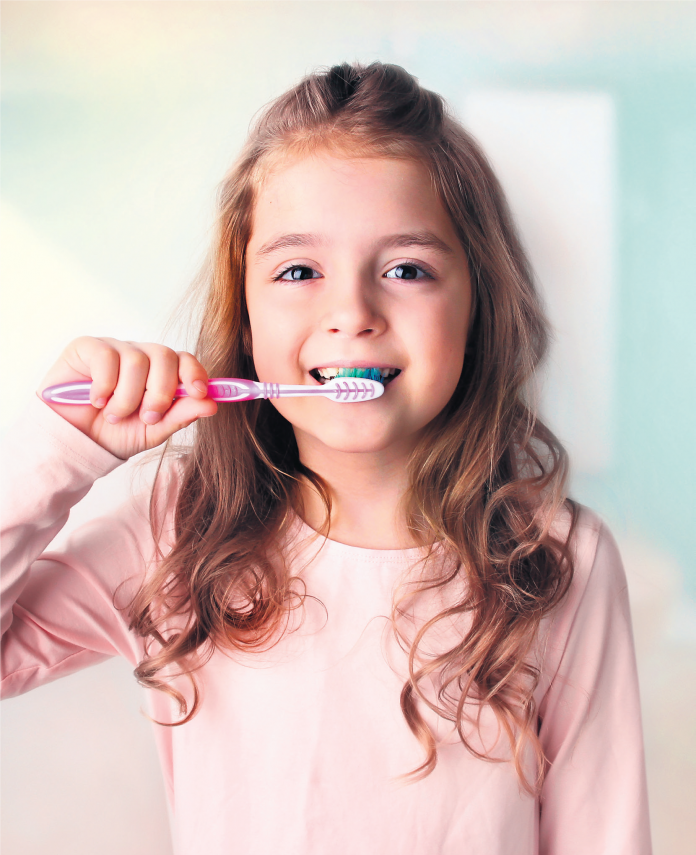All you need to know for National Smile month
By Sandra White, National lead for Dental Public Health
Although there have been improvements in children’s teeth in England, there are still too many little children who are having to have teeth extracted due to tooth decay. This is upsetting for the child, the parents and even the dental teams.
Tooth decay can cause pain, infection, problems with eating, speaking, sleeping and can result in days off school. There are at least 60,000 days missed from school each year because of children having to go to hospital to have teeth extracted, and this doesn’t include the time taken off work by parents and carers. The most common reason for 6 to 10-year old children to have to go to hospital is to have teeth out under general anaesthetic (PHE 2019).
While 77% of five-year old children in England are now free of obvious tooth decay, significant regional inequalities remain, with children from the most deprived areas having more than twice the level of decay than those from the least deprived.
Tooth decay is largely preventable, which makes the fact that children are having to undergo treatment including fillings and extractions seem more unacceptable. The main cause of tooth decay is consumption of too much sugary food and drinks. Children are still consuming the equivalent of around 5,500 sugar cubes per year, which is 2,800 more than the recommended limit. For five-year olds, this is equivalent to eating their body weight in sugar alone.
So what can you do help? Top tips for teeth

Tooth decay can be almost eliminated by the combination of reducing sugar and correct tooth brushing with a fluoride toothpaste, backed up by regular examination by a dentist.
There are simple steps that parents, carers and children can take every day to protect and improve their oral health.
Parents and carers should start brushing their children’s teeth as soon as the first tooth appears (usually at about 6 months of age), twice a day with fluoride toothpaste before bedtime and on at least one other occasion. Toothpaste that contains 1350ppm to 1500ppm fluoride gives your child the best protection against tooth decay. For children under 3 years use a smear of toothpaste on the brush and for 3 to 6-year olds use a pea-sized amount of toothpaste. Encourage children to spit out the toothpaste after brushing, but don’t rinse as this washes away the fluoride.
Parents/carers should brush or help their child to brush their teeth until they are at least seven years old to make sure the teeth are cleaned properly and to supervise the amount of toothpaste used.
The message for sugar is ‘eat less sugar, less often’ , so reduce the amount of sugar consumed in foods and drinks especially before bedtime. Parents can help by swapping their children’s high sugar foods and drinks for lowersugar alternatives for example sugar free, diet or no added sugar drinks. There are tools to help here, such as Change4Life’s ‘Food Scanner’ app and other resources.
Take children to the dentist as soon as their first teeth erupt. Regular trips to the dentist should be made as often as the dentist recommends. NHS dental treatment is free for everyone up to the age of 18 and your dental team can help with how to look after your child’s teeth and can do preventive treatments such as painting the teeth with fluoride varnish.
Oral health is everyone’s business – creating a generation of smiles.

From national and local health policy-makers, to healthcare, childcare and early years settings, families and the food and drink industry, improving children’s teeth is everyone’s business.
The Children’s Oral Health Improvement Programme Board brings together over 20 active partner organisations who share the ambition that every child should grow free from tooth decay as part of the best start in life. The Board works at national, and local level to support and promote evidence-based action to reduce sugar in children’s foods and drinks and increase access to fluoride in toothpaste, fluoride varnish and through community water fluoridation.
Community interventions such as water fluoridation and supervised toothbrushing in early years settings have been shown to work to improve children’s teeth and reduce inequalities.
In addition, in some areas of high need, NHS England are running ‘Starting Well’ schemes to encourage a preventive approach and early attendance at the dentist.
This combined action of local community oral health improvement schemes, and action
by local dental teams has been shown to be effective and can be found across the UK such as in the ‘Scottish Childsmile’ and Welsh ‘Design to Smile’ programmes.
Our children have their whole life ahead of them, and good oral health has a wider impact than just being pain free. A good smile helps them to socialise, to have the confidence and self-esteem to grow to find a partner, find a job. It should be everyone’s ambition that every child should grow free from tooth decay as part of the best start in life.
 References:
References:
Change4Life: food scanner
Health Matters – child dental health
Child oral health – Applying All Our Health
Dental Check by one/Starting Well – above
Delivering Better Oral Health – children’s leaflet






